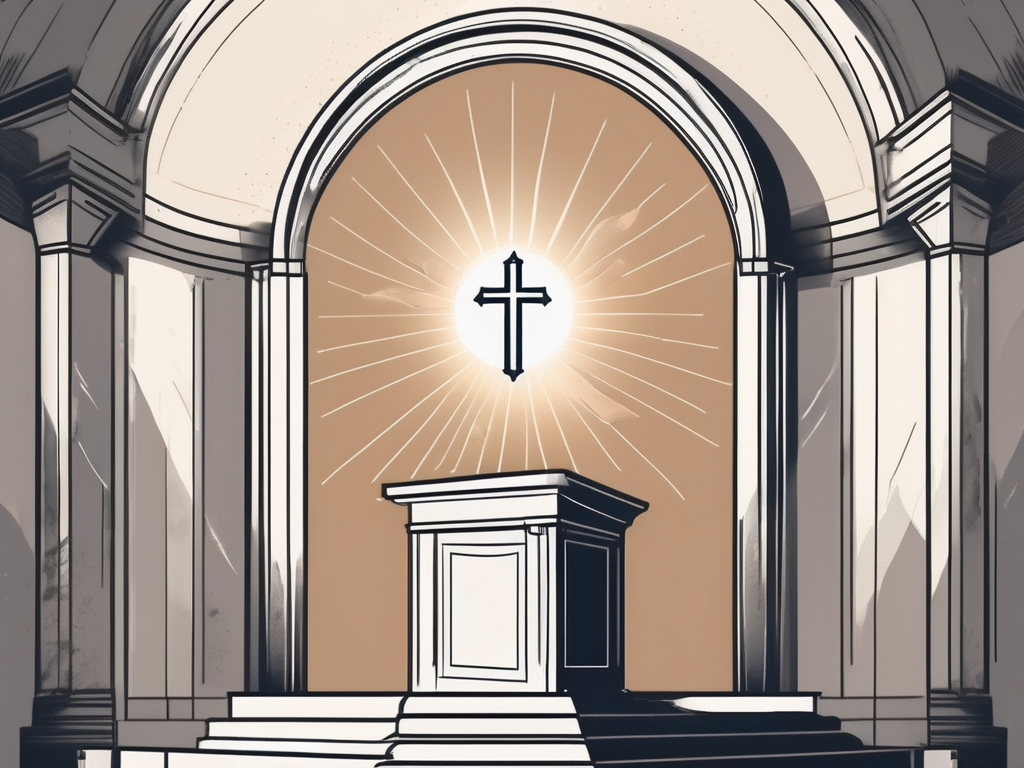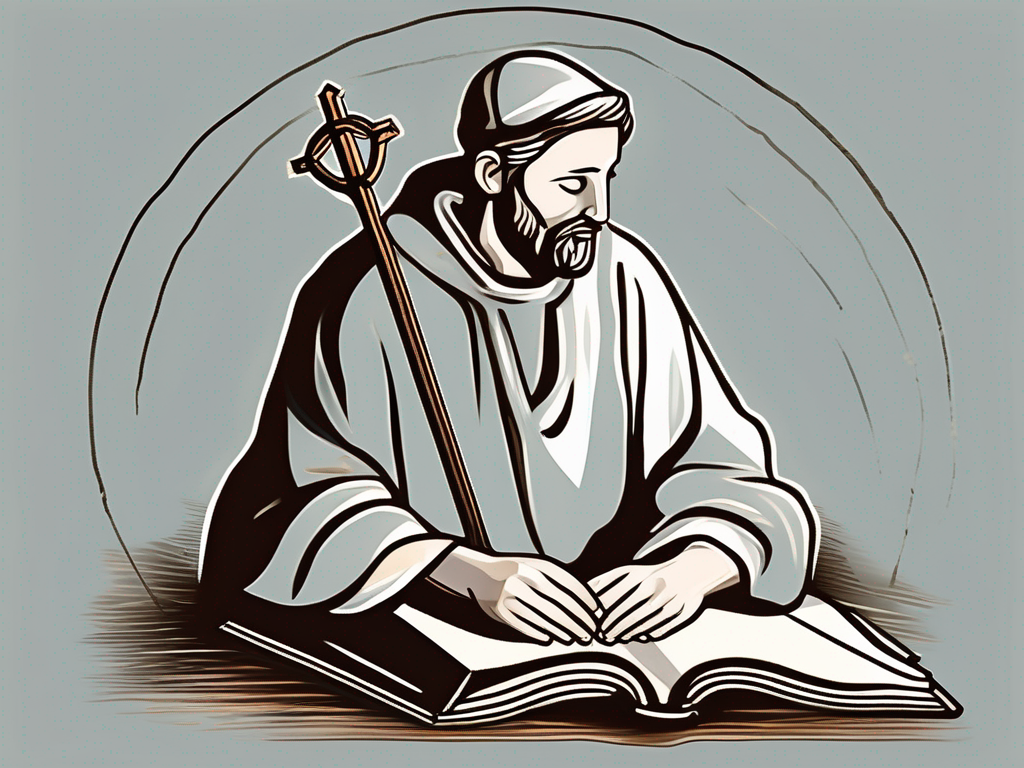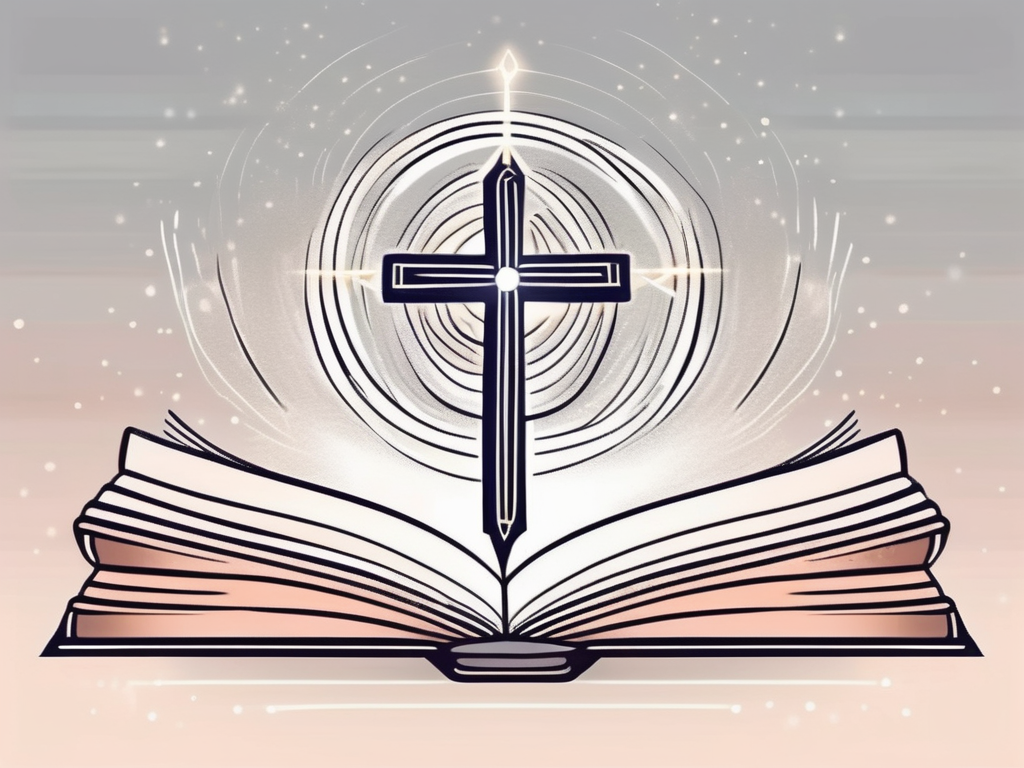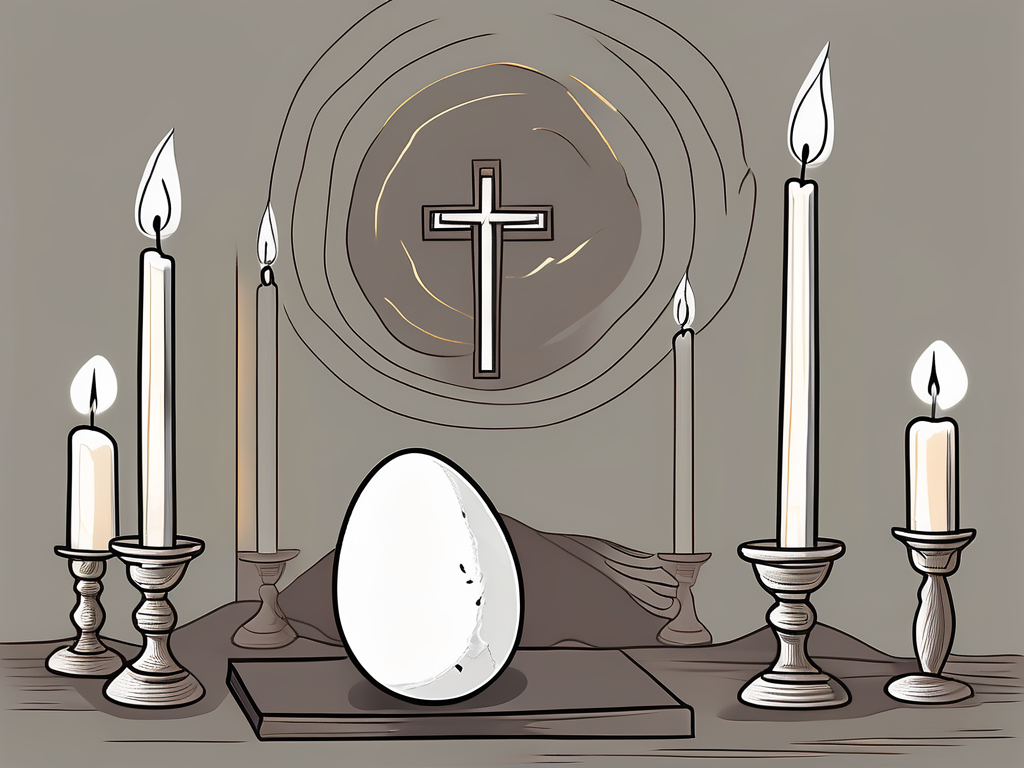In the world of Christianity, the role of women in leadership within the church has been a subject of much discussion and debate. While some denominations fully embrace the idea of female pastors, others remain more conservative in their beliefs. In this article, we will explore the various perspectives on female pastors within different denominations, examine the historical context of female leadership in the church, and consider the global perspective on this issue.
Understanding the Role of Female Pastors in Christianity
The topic of female pastors goes beyond just the question of whether women can hold leadership positions in the church. It involves discussions about gender equality, interpretation of biblical texts, and the influence of cultural and societal norms. To fully understand this topic, it is important to explore the historical context as well as the theological perspectives surrounding the role of women in the church.
The Historical Context of Female Leadership in the Church
Historically, women have played significant roles in various religious movements. From the early days of Christianity, women have served as deacons, leaders, and prophets. For example, in the New Testament, Phoebe is mentioned as a deacon of the church in Cenchreae, and Junia is referred to as “outstanding among the apostles.” These examples highlight the active participation of women in the early Christian community.
However, over time, these roles became increasingly restricted. In many denominations, women were excluded from positions of authority, including the role of pastor. This shift can be attributed to a variety of factors, including the rise of patriarchal societies and the influence of certain interpretations of biblical texts. The relegation of women to subordinate roles within the church became the norm for centuries.
It was not until the latter part of the 20th century that we saw a resurgence of female pastors in certain denominations. This resurgence was fueled by the feminist movement and the growing recognition of women’s rights in society. As more women pursued theological education and challenged traditional gender roles, they began to break through the barriers that had been placed on them within the church.
Theological Perspectives on Female Pastors
The question of female pastors is often rooted in differing interpretations of biblical texts. Some argue that certain passages in the Bible restrict the role of women in leadership, pointing to verses such as 1 Timothy 2:12, which states, “I do not permit a woman to teach or to assume authority over a man; she must be quiet.” These individuals believe that these texts should be understood as prescriptive and applicable to all times and cultures.
On the other hand, there are those who believe that these texts can be interpreted in a more inclusive manner. They argue that the cultural and historical context in which these verses were written must be taken into account. They also point to other passages in the Bible that depict women in leadership roles, such as Deborah in the Old Testament, who served as a judge and prophetess.
Theologians and scholars have engaged in these debates, with some providing scriptural support for the ordination of women. They argue that the overarching message of the Bible is one of equality and liberation, and that women should be allowed to serve in any capacity within the church. Others, however, argue for a more traditional view, emphasizing the importance of adhering to established interpretations of scripture.
Ultimately, the question of female pastors is a complex and multifaceted one. It involves not only theological considerations, but also societal and cultural factors. As the conversation continues, it is important to approach this topic with open minds and hearts, seeking to understand and respect the diverse perspectives that exist within the Christian community.
Denominations that Ordain Women
Despite the historical restrictions on female pastors, there are many denominations today that fully embrace and support women in leadership positions. These denominations recognize the gifts and talents women bring to the ministry and strive for gender equality within the church. Let’s take a closer look at the denominations that ordain women.
Protestant Denominations and Female Pastors
Within the Protestant tradition, many denominations allow women to serve as pastors. These include the Episcopal Church, Presbyterian Church (USA), Evangelical Lutheran Church in America, United Methodist Church, and the United Church of Christ. For these denominations, gender is not a barrier to ordination, and women have made significant contributions to their respective communities.
The Episcopal Church, for example, has a long history of female clergy. In 1974, the church ordained its first female priests, paving the way for countless women to serve in leadership roles. Today, the Episcopal Church continues to champion gender equality, with women holding positions of authority and influence throughout the denomination.
The Presbyterian Church (USA) also embraces the ordination of women. In 1956, the church ordained its first female minister, paving the way for a more inclusive and diverse clergy. Since then, women have played a vital role in shaping the church’s theology, mission, and ministry.
The Evangelical Lutheran Church in America (ELCA) is another denomination that ordains women. In 1970, the ELCA ordained its first female pastor, opening doors for women to serve as spiritual leaders. Today, women serve as bishops, pastors, and theologians within the ELCA, contributing their unique perspectives and insights to the church’s mission.
The United Methodist Church has a rich history of female leadership. In 1956, the church ordained its first female deacon, and in 1956, its first female elder. Since then, women have continued to break barriers and serve as pastors, bishops, and leaders within the denomination. The United Methodist Church actively encourages women to pursue careers in ministry and provides support and resources for their development.
The United Church of Christ (UCC) is known for its commitment to social justice and inclusivity. The UCC has been ordaining women since the late 19th century, making it one of the earliest denominations to do so. Women in the UCC have played pivotal roles in advocating for gender equality and challenging traditional gender norms within the church and society.
Catholic and Orthodox Views on Female Pastors
In contrast, the Catholic Church and the Eastern Orthodox Church do not ordain women as priests. While women can serve in various other roles within these traditions, the priesthood remains exclusive to men. The Catholic Church believes that Jesus intentionally chose only men as his apostles, which serves as the basis for their male-only priesthood. Orthodoxy similarly adheres to a male-only priesthood, citing the historical continuity of their traditions.
Despite the lack of female priests, women have played significant roles within the Catholic Church and Eastern Orthodox Church. Women religious, such as nuns and sisters, have made immense contributions to the spiritual and social fabric of these traditions. They have dedicated their lives to prayer, service, education, and healthcare, embodying the values of compassion and selflessness.
In recent years, there have been calls for greater inclusion of women in leadership positions within the Catholic Church and Eastern Orthodox Church. Advocates argue that expanding the role of women in these traditions would bring fresh perspectives, promote gender equality, and address the evolving needs of the faithful.
While the Catholic Church and Eastern Orthodox Church continue to grapple with the question of female ordination, the denominations that do ordain women serve as beacons of progress and inclusivity. These denominations demonstrate that women have a vital role to play in the ministry, offering unique insights, compassion, and leadership to their congregations and communities.
The Global Perspective on Female Pastors
While the debate surrounding female pastors is prevalent in North America and Europe, it is important to consider the global perspective on this issue. In other parts of the world, the role of women in leadership within the church varies greatly.
Expanding our understanding of the global perspective on female pastors reveals a rich tapestry of experiences and challenges faced by women in different regions. From North America to Europe, Africa to Asia, the acceptance and inclusion of female pastors differ significantly.
Female Pastors in North America
In North America, the debate over female pastors has been ongoing for many years. While there is a significant number of denominations that embrace the ordination of women, there are still pockets of resistance where traditional views hold strong. However, overall, there has been a positive trend towards greater acceptance and inclusion of women in leadership roles within the church.
Within North America, various denominations have taken different stances on the issue of female pastors. Some denominations, such as the United Methodist Church and the Evangelical Lutheran Church in America, have long embraced the ordination of women. These denominations have actively sought to empower women in leadership positions and have seen remarkable success in fostering gender equality within their congregations.
However, it is important to note that not all denominations have embraced the idea of female pastors. Some conservative branches of Christianity still hold firm to traditional interpretations of scripture that restrict women from assuming pastoral roles. This disagreement within the Christian community has sparked ongoing theological debates and discussions about the role of women in church leadership.
Female Pastors in Europe
In Europe, the acceptance of female pastors varies among different countries and denominations. Countries like Sweden and Norway have long embraced gender equality within the church, with a high number of female pastors serving in these regions. These countries have been at the forefront of progressive movements, advocating for women’s rights and challenging traditional gender norms.
On the other hand, some countries in Europe, particularly those with more conservative religious traditions, have been slower to adopt this change. In these regions, the debate surrounding female pastors often intersects with broader societal discussions about gender roles and equality. Traditional beliefs and cultural norms can pose significant barriers to women seeking leadership positions within the church.
Despite these challenges, there have been inspiring stories of women breaking barriers and becoming influential pastors in Europe. These women have not only shattered glass ceilings but have also become role models for future generations, challenging the status quo and advocating for gender equality within religious institutions.
Female Pastors in Africa and Asia
In Africa and Asia, the role of women in the church is influenced by cultural, social, and religious factors. In some regions, women face significant barriers to obtaining leadership positions within the church. Traditional gender roles and patriarchal systems can limit opportunities for women to serve as pastors.
However, it is essential to recognize that there are also many examples of female pastors leading vibrant congregations and making a positive impact in their communities. These women have defied societal expectations and cultural norms, demonstrating exceptional leadership skills and a deep commitment to their faith.
In Africa, for instance, there has been a growing movement of women pastors who are actively involved in community development initiatives. These pastors have become powerful agents of change, addressing social issues such as poverty, education, and healthcare. Their leadership has not only transformed the lives of individuals but has also contributed to the overall development of their communities.
In Asia, the role of women pastors varies greatly across different countries and religious traditions. In some countries, women have made significant strides in assuming pastoral roles, while in others, progress has been slower. Cultural and religious traditions heavily influence the acceptance and inclusion of female pastors in these regions.
Despite the challenges faced by women pastors in Africa and Asia, their resilience and determination have paved the way for future generations. These women have become beacons of hope, inspiring others to challenge gender norms and pursue their calling, regardless of societal expectations.
The Impact of Female Pastors on Church Communities
One of the key arguments in favor of female pastors is the positive influence they have on church communities. Their unique perspective, gifts, and experiences bring a fresh approach to ministry that can lead to meaningful growth and transformation.
The Influence of Female Leadership on Church Dynamics
Female pastors often bring a relational and empathetic approach to pastoral care, which resonates with many congregants. Their leadership style can foster collaboration, inclusivity, and a deep sense of community within the church. Female pastors also provide role models for young girls and women, inspiring them to pursue their gifts and passions within the church.
The Role of Female Pastors in Social Issues
Female pastors have been at the forefront of addressing social issues and advocating for justice and equality. They have played a vital role in championing causes such as women’s rights, LGBTQ+ inclusion, racial justice, and more. Through their preaching, teaching, and community engagement, female pastors have helped create more inclusive and socially conscious church communities.
The Future of Female Pastors
As we look to the future, it is clear that the role of female pastors will continue to evolve. The current trends suggest a growing acceptance of women in leadership positions within the church, but challenges and barriers still remain.
Current Trends and Predictions
Many denominations that previously opposed female pastors have begun to reconsider their positions. The rising number of women pursuing theological education and seeking ordination is a testament to the changing landscape. It is likely that more denominations will embrace female pastors in the years to come.
Overcoming Challenges and Barriers for Female Pastors
While progress is being made, there are still obstacles that female pastors face, including sexism, gender stereotypes, and traditional resistance. These challenges highlight the need for continued advocacy and support for female pastors, as well as a commitment to dismantling patriarchal structures within the church.
In conclusion, the question of which denominations allow female pastors is a complex one. It involves historical, theological, and cultural factors that shape the perspectives of different denominations and regions. While there is growing acceptance of female pastors in many parts of the world, there is still work to be done in achieving full gender equality within the church. As we continue to navigate these discussions, it is important to approach them with empathy, respect, and a commitment to justice and equality.












